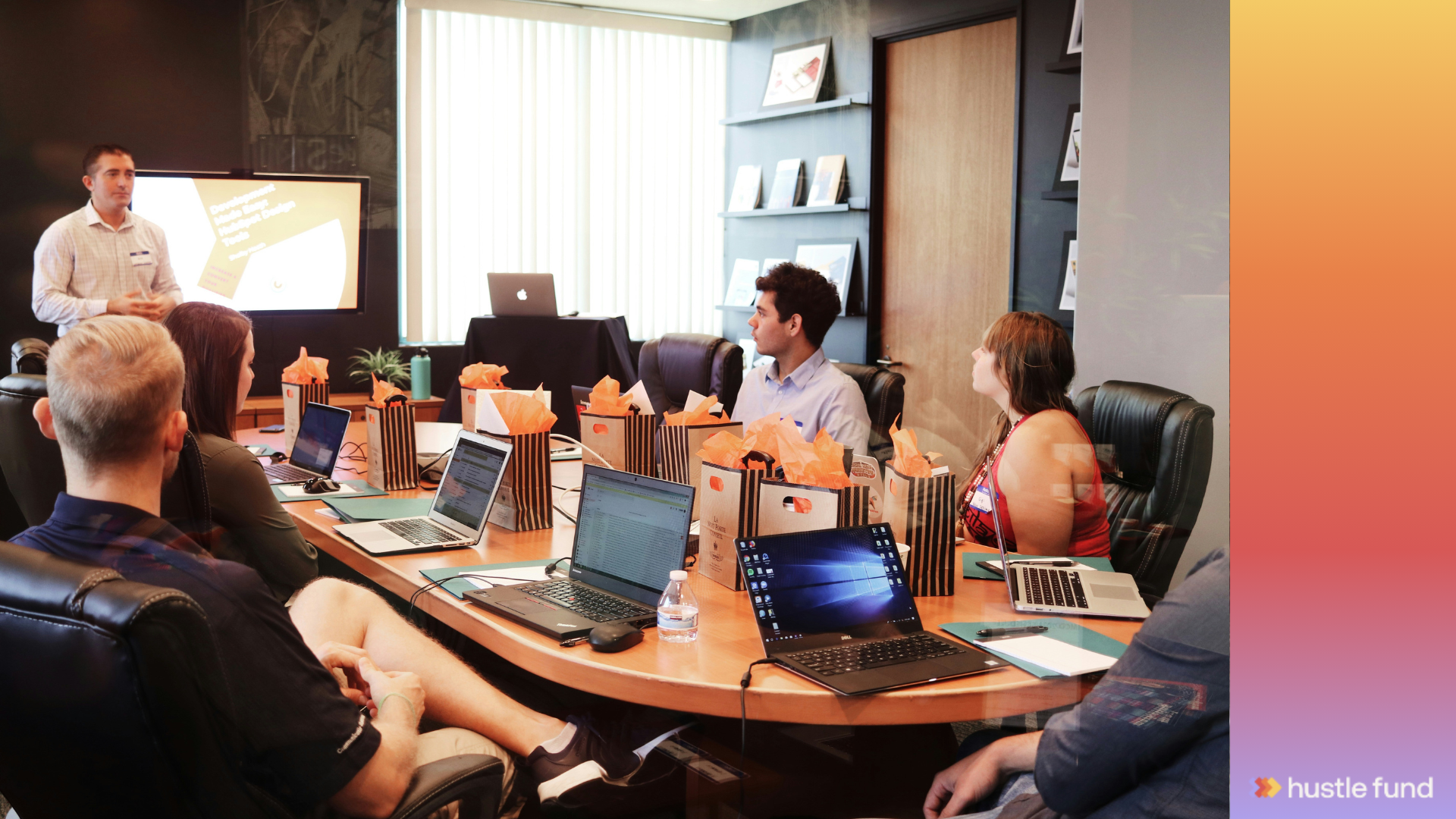Questions to Ask During a Pitch Meeting
.png)
Brian Nichols is the co-founder of Angel Squad, a community where you’ll learn how to angel invest and get a chance to invest as little as $1k into Hustle Fund's top performing early-stage startups
I find pitch meetings a bit nerve wracking.
Even though I'm not the one asking for money, I worry that I won't ask the right questions to make an informed decision.
That's why I love watching pitch events. Listening to experienced investors ask smart, illuminating questions about a startup is a great way to prepare for my own pitch meetings.
A few weeks ago at Angel Squad Summit, investors Eric Bahn (Hustle Fund), Elizabeth Yin (Hustle Fund), and Mac Conwell (Rare Breed) heard two pitches from startup founders.
After each pitch, the investors asked a few questions, then said whether they would or would not invest in these companies (and why).
(To watch a recording of this, go here and fast forward to 30 minutes.)
Below are the questions I thought were particularly helpful in one of those pitches.
Anj from Rivet
The first founder was Anj from Rivet. Rivet is a platform that helps content creators engage with and monetize their fans without relying on social media algorithms.
Anj's pitch was fantastic and I highly encourage you to watch it.
But at the end of the pitch, Eric, Elizabeth, and Mac had some questions. Here are my favorites:
"What segment within the gigantic TAM are you focusing on first?"
I love this question. Many founders include TAM in their pitches because they want to prove that there is room to grow.
And yes, having a big addressable market is important.
But the most effective way for a startup to sell its services is to start with a niche within that massive market. If the founder tries to go after a 4 or 5 different audiences at once, they probably won't be that successful with any of them.
Why? Because different audiences have different needs. Different problems. Different ways of explaining that problem.
And the founder needs to nail it with one audience before expanding into other markets.
BTW, Anj had a great answer to this at minute 38:50.
"How many users do you have?"
Mac told Anj that it's a red flag when a founders doesn't share specific numbers in a pitch. This signals to the investor that the founder doesn't want to share those numbers... because they're terrible.
But the thing is, when you're an early-stage startup, any number over zero is a good number.
It's possible that founders are embarrassed about their growth to date, and won't want to share their numbers proactively.
But it's our job as investors to dig deep into the business before writing a check. Knowing that the business has grown 14% month-over-month isn't enough.
Don't be afraid to ask the hard questions. You might be pleasantly surprised (like these investors were when Anj finally shared his metrics).
"How did you find your early customers?"
This was another of Mac's questions.
He wanted to know... are the users on your platform just your buddies who signed up because they like you? Or have you explored a variety of marketing channels and found a few that have some traction?
At the early stage, it's ok if founders haven't found a great marketing channel yet.
In all likelihood, that will take months or years to happen.
But this question gives us important insights around what kind of founder this is.
Is Anj simply a founder with an idea? Or is he a founder who is putting in the hard – but critical – work of validating the idea, understanding the audience, and acquiring customers?
"Why would someone use you over your competition?"
This was Elizabeth's question.
And it may seem like a simple question, but it's actually a doozy.
In this case, there are a variety of free tools that creators can use to reach their audience, like Twitter and Mailchimp. Why wouldn't a user just use those platforms?
This is a great question because it forces the founder to think about their differentiator.
If a product isn't significantly different from tools that already exist, the company is essentially doomed.
Why? Because users won't want to go through the trouble of switching to a new platform if there's not a big enough difference in that new product. So getting people to convert will be a huge challenge.
Also, since many companies are going after the same audience, customer acquisition costs will be super high.
Lastly, investors won't want to fund a company that isn't thinking about a problem in a radically different way.
That's all for today!
If you're curious about the questions Eric, Elizabeth, and Mac asked during the second pitch of Angel Squad summit, check out the recording of the event here.
Inquisitively,
Kera from Hustle Fund













